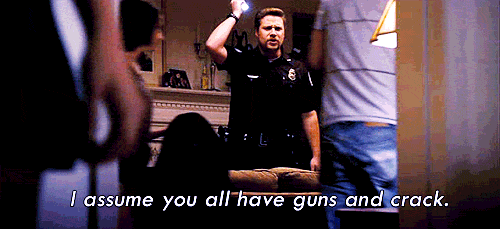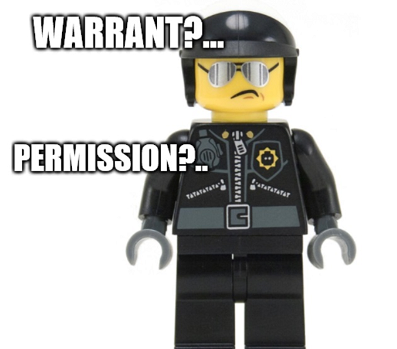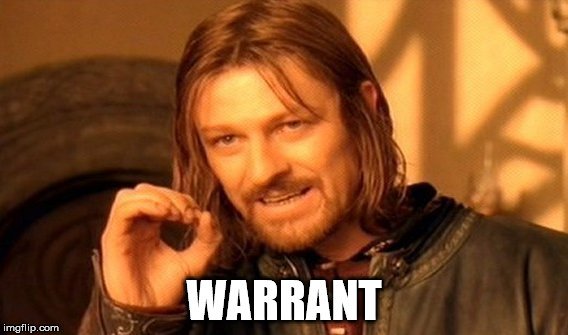NYPD Adjusting Their Approach When It Comes To Noise Complaints

One of the most common activities that the police engage in is responding to noise complaints, particularly when it comes to breaking up parties in the middle of the night that are annoying the neighbors.
In 2016 alone it's estimated that there were over 80,000 noise complaints just in the first half of last year alone.

NYPD officers have no doubt responded to and broken-up several shindigs in their time. But all of that is about to change.
According to new directives that have recently been passed, the department is now discouraged from entering a private residence in response to a noise complaint. They are only allowed to enter that property if they are given specific permission.
Why the change?
The new rules are said to be the result of the NYPD having suffered one too many lawsuits over their actions to trespass on private property without following due process in obtaining the proper warrant.
In 2016 alone they saw over 2,000 lawsuits brought against the department. And the city spent roughly $228 million last year as a consequence of their misconduct pertaining to various matters.
A number of homeowners allegedly were successful in their lawsuits they launched against the city; they argued that the police had entered their residence without the appropriate warrant.

A number of officers aren't very happy about the changes, which isn't a surprise seeing as they never do appear to welcome any limitations on their authority. The usual worry once again is that chaos will descend on the streets of New York, as a result of the police needing to obtain a warrant (or permission from the property owner) before they can enter a space simply because of a noise complaint.
Allowing the police to enter whatever private property space they want, just because of a noise complaint (or few), has proven to be too costly of an approach.
As far as whether or not this will really change their approach though, that isn't very clear. One police spokesman allegedly responded in saying that “nothing has changed” as far as their policing approach in this matter.

However, that response contradicts the changes detailed in a recent department wide memo that was allegedly sent out on the matter; that memo specifically states that warrantless entry into a private property space is not authorized solely for the purpose of abating any noise complaints.
If they get a call from now on and there is no response from inside to calls to open the door or turn down the music, then they are instructed to return the following day with the appropriate summonses.
Pics:
Pixabay
giphy
Brick Owl/imgflip
imgflip
Sources:
http://nypost.com/2017/05/10/nypd-cops-forbidden-from-breaking-up-noisy-parties/
http://www.nydailynews.com/new-york/new-rules-limits-cops-ability-enter-private-property-article-1.3153711
http://nypost.com/2016/07/03/cops-write-fewer-tickets-for-loud-disturbances-as-complaints-rise/
http://www1.nyc.gov/assets/operations/downloads/pdf/mmr2016/2016_mmr.pdf
One American friend told me in America no one can enter their private property and they have a bill or right something like that to make sure no one can enter it. Where I'm from you have no rights they search my place when they feel like it which I'm not a fan of.
yes there are supposed to be Constitutionally protected rights that include the right to be free from unlawful search and seizure of your property, which is why a number of people have won their lawsuits against the NYPD in court and now the police are having to change their ways lol
Right on, I have respect for police officers, but no respect for abuse of power.
just a shame they don't put their talents to better use in the world 👌
This post has been ranked within the top 10 most undervalued posts in the second half of May 11. We estimate that this post is undervalued by $42.60 as compared to a scenario in which every voter had an equal say.
See the full rankings and details in The Daily Tribune: May 11 - Part II. You can also read about some of our methodology, data analysis and technical details in our initial post.
If you are the author and would prefer not to receive these comments, simply reply "Stop" to this comment.